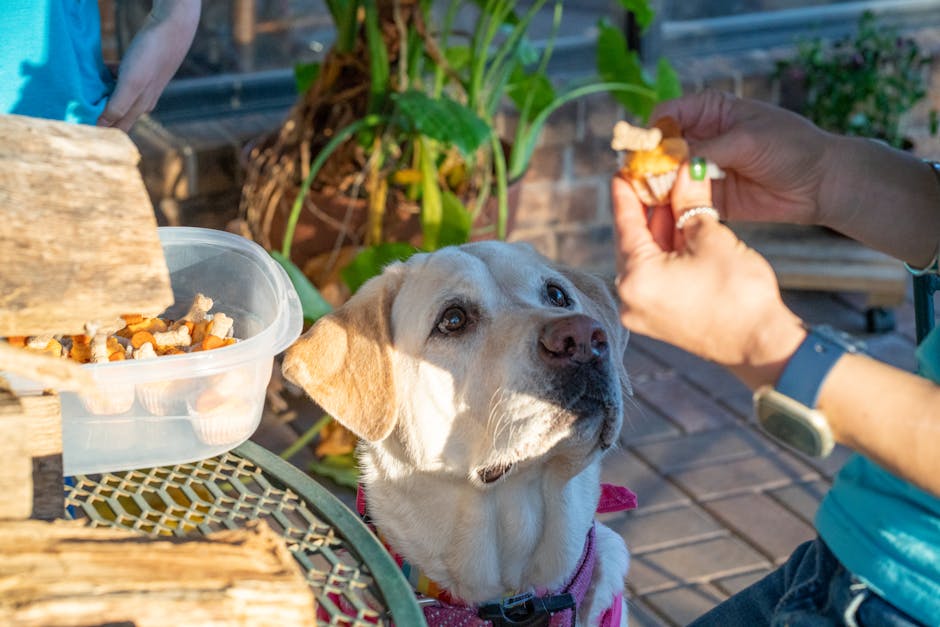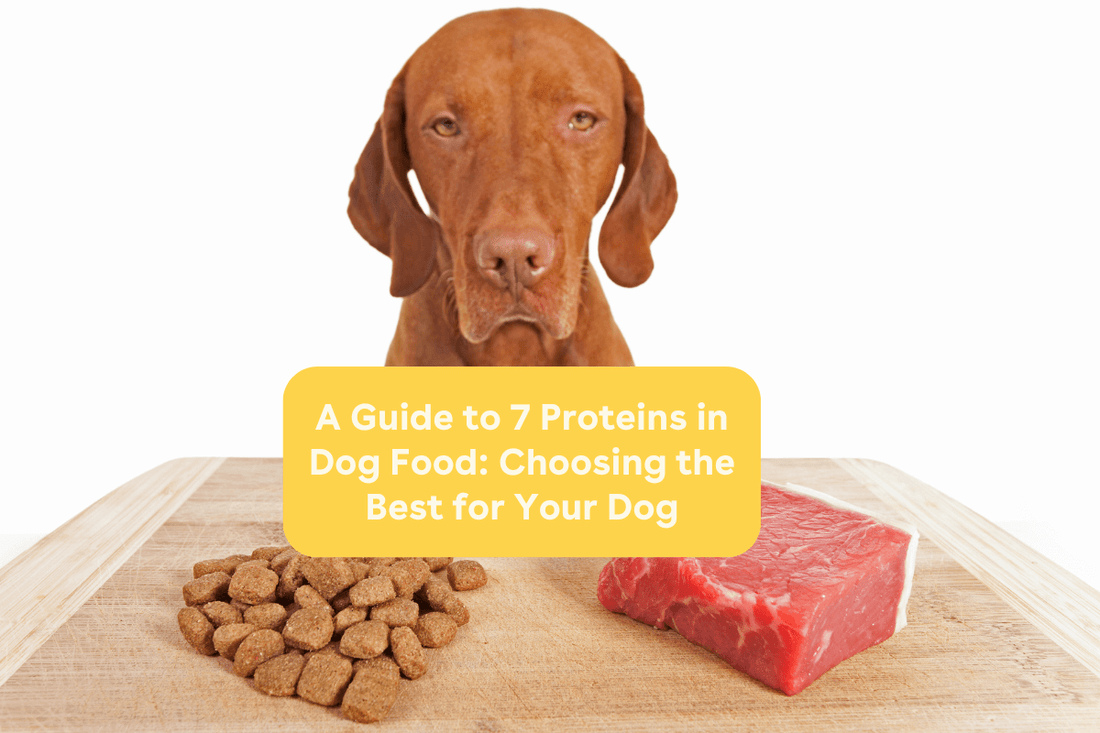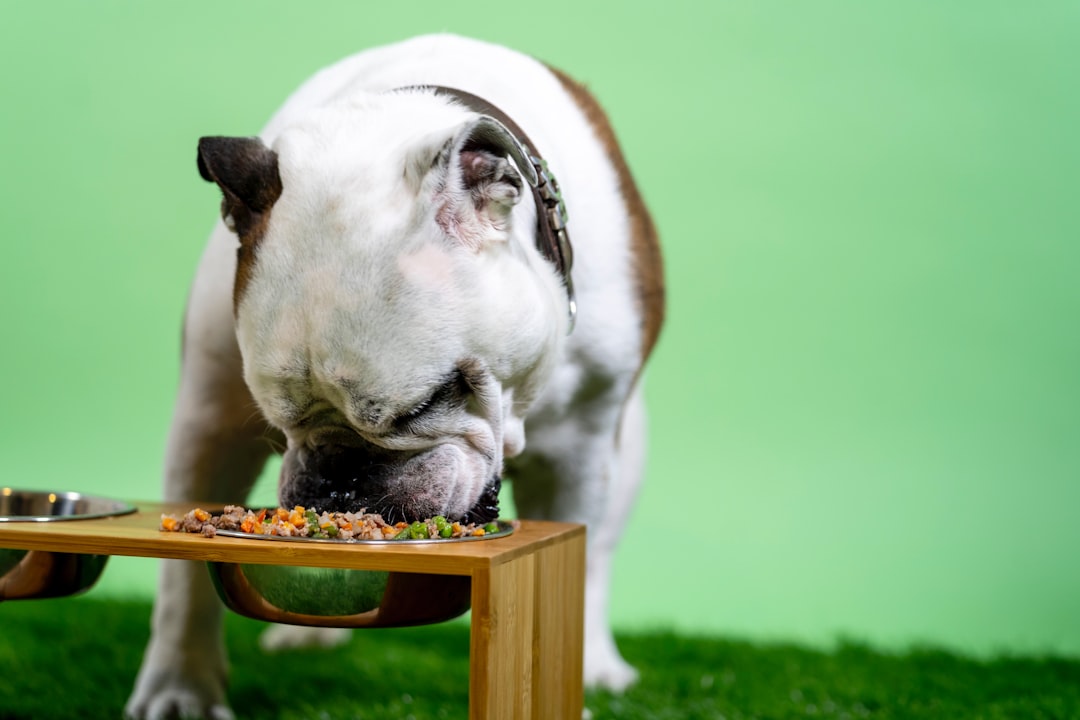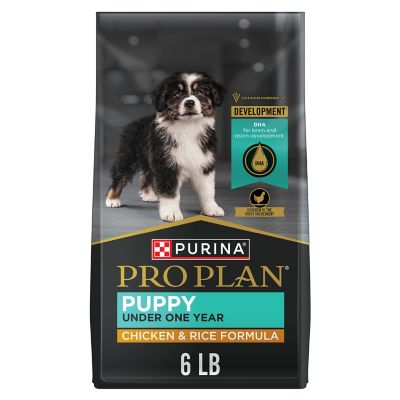If you have a nursing dog, you know how important it is to keep her healthy and strong. What you feed her now affects not only her well-being but also the health of her puppies.
Choosing the right food can feel confusing with so many options out there. But don’t worry—you’re about to discover exactly what kind of food will give your nursing dog the energy and nutrients she needs. Keep reading to find out how to support your furry friend during this crucial time and ensure her puppies get the best start in life.
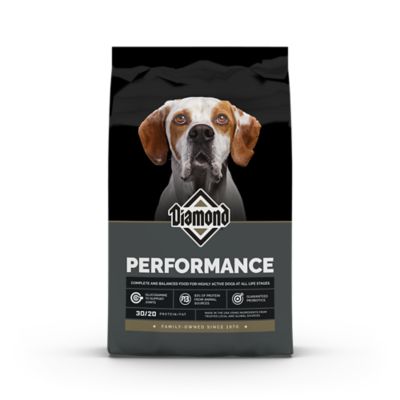
Credit: www.tractorsupply.com
Nutritional Needs Of Nursing Dogs
Nursing dogs require special attention to their diet. Their bodies undergo significant changes while nourishing their puppies. It is crucial to understand their nutritional needs. Providing the right food ensures their health and the health of their puppies.
Increased Caloric Requirements
Nursing dogs need more calories. Their energy levels are higher to support milk production. A diet rich in calories helps maintain their weight and energy. High-quality dog food with extra calories is ideal. It ensures they have enough strength for their daily activities.
Essential Nutrients For Milk Production
Milk production demands specific nutrients. Protein is vital for developing healthy puppies. Calcium and phosphorus support bone growth. Fatty acids improve the quality of the milk. Vitamins and minerals boost immunity. Balanced nutrition is key for both mother and puppies.
Hydration Importance
Hydration is crucial for nursing dogs. They need more water for milk production. Fresh water should always be available. Wet dog food can increase water intake. Hydration supports digestion and overall health. It keeps the nursing dog active and comfortable.
High-quality Protein Sources
High-quality protein is essential for nursing dogs because it supports milk production and helps them regain strength after giving birth. Proteins provide the building blocks for tissue repair and energy, both critical during this demanding time. Choosing the right sources ensures your dog and her puppies get the nutrients they need without unnecessary fillers.
Lean Meats
Lean meats like chicken, turkey, and lean cuts of beef offer rich protein without excess fat. These meats provide essential amino acids that help your dog maintain her muscle mass and energy levels. When I switched my nursing dog to lean turkey, I noticed her recovery was faster and her milk supply steadier.
Make sure the meat is cooked thoroughly to avoid any risk of bacteria. Avoid processed meats, as they often contain additives and salts that can upset your dog’s digestion.
Eggs
Eggs are a powerhouse of protein and easy to digest, making them a perfect food for nursing dogs. They contain vital nutrients like vitamins A, B12, and riboflavin, which support overall health and vitality. Adding a cooked egg to your dog’s diet a few times a week can boost her nutrition without overloading her system.
Have you tried feeding your dog scrambled eggs or boiled eggs? Both are gentle on the stomach and can be a tasty treat for your nursing dog.
Fish Benefits
Fish such as salmon and sardines are not only high in protein but also rich in omega-3 fatty acids. These fats help reduce inflammation and promote healthy skin and coat, which is especially important for nursing dogs. I noticed that after adding fish to my dog’s meals, her fur became shinier and her energy levels improved.
Be sure to cook fish well and remove any bones before serving. Fish oil supplements can also be a good option if you want to add omega-3s without altering the diet too much.
Healthy Fats For Energy
Nursing dogs need extra energy to care for their puppies. Healthy fats provide a rich source of calories. These fats support milk production and keep the mother strong. Feeding the right fats improves skin, coat, and overall health. It helps the dog stay active and nourished during this demanding time.
Omega-3 And Omega-6 Fatty Acids
Omega-3 and omega-6 are essential fats for nursing dogs. They help reduce inflammation and support brain development in puppies. Omega-3 improves heart health and aids joint function. Omega-6 promotes healthy skin and a shiny coat. Both fatty acids work together to maintain energy and vitality.
Sources Of Healthy Fats
Good sources of healthy fats include:
- Fish oil, rich in omega-3 fatty acids
- Flaxseed oil, a plant-based omega-3 source
- Chicken fat, providing balanced omega-6 fats
- Egg yolks, containing essential fatty acids and nutrients
- Sunflower oil, high in omega-6 fatty acids
These fats should be included in the dog’s diet in the right amounts. Avoid too much fat, which can cause digestive issues. Consult a vet for the best fat levels for a nursing dog.
Carbohydrates And Fiber
Carbohydrates and fiber are vital for nursing dogs. They supply energy needed for milk production and help maintain healthy digestion. Proper carbs and fiber improve nutrient absorption and keep the dog’s gut working well. Choosing the right sources supports both mother and puppies during this demanding time.
Whole Grains
Whole grains are excellent carbohydrate sources. They release energy slowly, which helps sustain stamina. Examples include brown rice, oats, and barley. These grains contain essential vitamins and minerals. They also provide fiber that aids digestion and keeps bowel movements regular. Avoid refined grains, as they lack nutrients and fiber.
Vegetables For Fiber
Vegetables add fiber and nutrients to a nursing dog’s diet. Good options are carrots, green beans, and pumpkin. These vegetables help prevent constipation and support gut health. Fiber from vegetables promotes a balanced digestive system. Feeding them cooked or pureed makes it easier for dogs to digest.
Vitamins And Minerals
Vitamins and minerals play a vital role in keeping your nursing dog healthy and strong. These nutrients support not only her own body but also the growth and development of her puppies. Ensuring the right balance can make a big difference in how well she recovers from birth and produces nourishing milk.
Calcium For Bone Health
Calcium is crucial for maintaining strong bones in nursing dogs. It helps prevent conditions like eclampsia, a serious drop in blood calcium that can cause muscle tremors and weakness. You might notice your dog restless or stiff if her calcium levels dip too low.
Adding calcium-rich foods like plain yogurt or specially formulated dog supplements can support her needs. But be careful not to give too much, as excess calcium can cause problems too. Have you checked with your vet about the right amount for your dog’s breed and size?
Other Essential Vitamins And Minerals
Besides calcium, nursing dogs need a variety of vitamins and minerals to stay healthy. Vitamins A and E boost the immune system and help repair tissues after delivery. Zinc supports skin health and aids in wound healing, which is especially important if your dog has any tears or scratches.
Including foods like liver, eggs, and leafy greens can provide these nutrients naturally. You can also consider a balanced puppy or nursing dog formula, which often contains the right mix. Do you know which vitamins your dog’s current diet might be missing?
Foods To Avoid
Feeding a nursing dog requires extra care, especially when it comes to what you should avoid. Certain foods can harm your dog’s health and affect the quality of milk she produces for her puppies. Knowing which ingredients and additives to stay away from is just as important as knowing what to feed.
Toxic Ingredients
Some common human foods are outright dangerous for nursing dogs. Chocolate, grapes, raisins, onions, and garlic can cause severe health problems. Even small amounts of these can lead to vomiting, diarrhea, or worse.
Think about this: would you feed your dog a snack that could poison her puppies? Avoid any food containing these ingredients to keep your dog and her litter safe.
Harmful Additives
Many commercial dog foods and treats contain additives that might not be obvious but can be harmful. Artificial colors, flavors, and preservatives often lead to allergic reactions or digestive issues. These can reduce milk quality and affect puppy growth.
Look closely at the ingredient list on your dog’s food packaging. Ingredients like BHA, BHT, and ethoxyquin are preservatives you should avoid. Choosing natural or minimally processed foods helps your nursing dog stay healthy and strong.
Sample Meal Plans
Sample meal plans help ensure nursing dogs get the nutrition they need. Their bodies work hard to feed puppies. Meals must support energy, milk production, and recovery. Balanced diets with the right nutrients keep both mother and pups healthy. Below are practical meal options for nursing dogs.
Homemade Diet Options
Homemade meals allow control over ingredients. Fresh, whole foods provide essential nutrients. Include proteins, carbs, fats, and vitamins. Here is a simple example:
| Ingredient | Amount | Benefits |
|---|---|---|
| Boiled chicken | 1 cup | High-quality protein |
| Cooked brown rice | ½ cup | Energy from complex carbs |
| Steamed carrots | ¼ cup | Vitamins and fiber |
| Olive oil | 1 tsp | Healthy fats |
| Calcium supplement | As directed | Supports milk production |
Serve meals warm and fresh. Avoid raw foods or harmful ingredients. Consult a vet for supplement needs.
Commercial Food Choices
Commercial diets offer convenience and balanced nutrition. Select formulas made for nursing or growing dogs. Check labels for high protein and fat content. Brands often add vitamins and minerals needed during nursing.
- Choose puppy or all-life-stages formulas for extra nutrients.
- Look for foods with real meat as the first ingredient.
- Avoid fillers like corn or excessive grains.
- Feed multiple small meals to maintain energy.
- Always provide fresh water alongside food.
Consult your vet to select the best product. Follow feeding guidelines but adjust amounts based on the dog’s weight and activity.
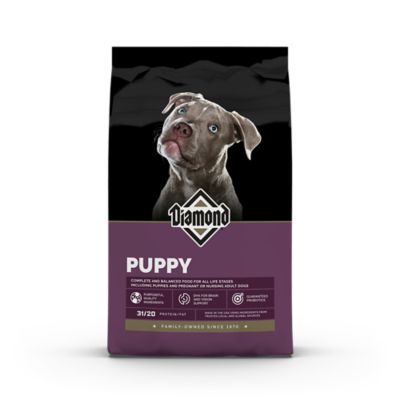
Credit: www.tractorsupply.com
Tips For Feeding Nursing Dogs
Feeding a nursing dog requires special attention to ensure she and her puppies stay healthy. The right food and feeding routine can make a huge difference in her energy levels and milk production. You’ll want to adjust her diet to meet the increased demands on her body during this time.
Meal Frequency And Portion Sizes
Nursing dogs need more calories than usual, but that doesn’t mean you should just give them one big meal a day. Instead, feed smaller, more frequent meals throughout the day. This helps her digest food better and keeps her energy steady.
A good rule is to offer food at least three to four times daily. You might notice your dog eating more eagerly—this is a sign her body needs extra fuel. Increasing portion sizes gradually while monitoring her appetite is key. Too much too fast can upset her stomach, so watch for any signs of discomfort.
Monitoring Health And Weight
Keeping an eye on your dog’s weight is crucial during nursing. Sudden weight loss can signal she’s not getting enough nutrients, while excessive weight gain might mean overfeeding or lack of exercise. You should weigh her regularly, ideally once a week.
Look for changes in her coat, energy level, and overall behavior as well. A dull coat or lethargy may indicate nutritional deficiencies. Don’t hesitate to consult your vet if you notice anything unusual—early intervention can prevent bigger problems.
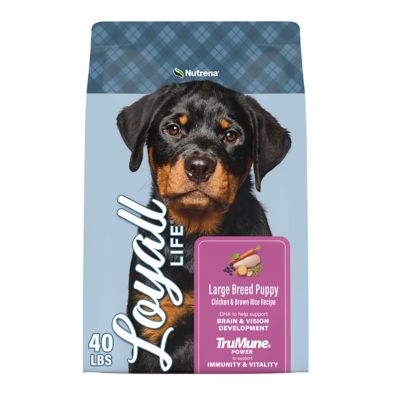
Credit: www.tractorsupply.com
Frequently Asked Questions
What Foods Boost Milk Production In Nursing Dogs?
High-quality protein, healthy fats, and calcium-rich foods boost milk production. Include lean meats, eggs, fish, and dairy. Fresh vegetables and grains support overall nutrition. Always provide plenty of fresh water to help hydration and milk supply.
Can Nursing Dogs Eat Puppy Food?
Yes, puppy food is ideal for nursing dogs. It offers higher calories, protein, and nutrients needed for milk production. Puppy food supports energy and recovery. Consult your vet to choose the best brand and formula for your dog.
How Often Should Nursing Dogs Be Fed Daily?
Nursing dogs need frequent, smaller meals throughout the day. Feed them 3 to 4 times daily to meet energy needs. This helps maintain steady nutrient levels and supports milk production. Fresh water should be available at all times.
Are Supplements Necessary For Nursing Dogs?
Supplements can help but are usually unnecessary with a balanced diet. Calcium and omega-3 fatty acids may be recommended by vets. Always consult your vet before adding supplements to avoid overdosing or nutritional imbalance.
Conclusion
Good food helps nursing dogs stay healthy and strong. They need extra nutrients and calories to care for their puppies. Balanced meals with protein, fats, and vitamins support milk production. Fresh water is just as important. Avoid foods that upset their stomach or cause allergies.
A healthy diet means happy moms and healthy puppies. Feeding right helps dogs recover faster and feel better. Keep their meals simple, nutritious, and regular. This care makes a big difference for nursing dogs and their little ones.



